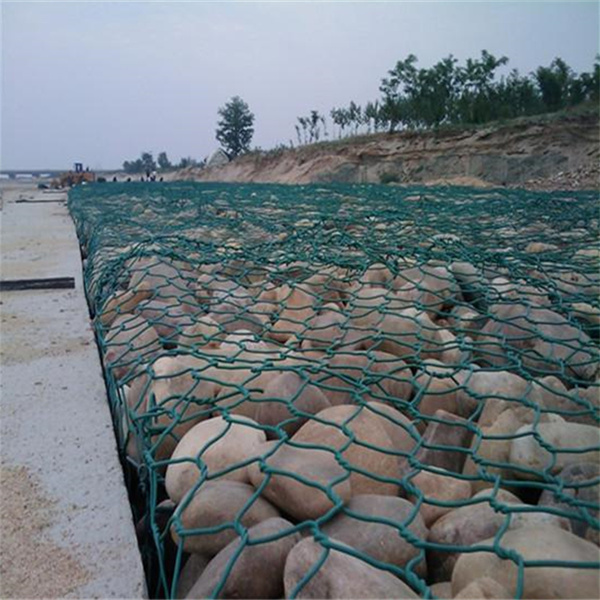Ağu . 06, 2024 11:46 Back to list
Exploring the Various Sizes of Gabion Mesh Offered by Leading Manufacturers in the Industry
Understanding Gabion Mesh Sizes and Manufacturers
Gabions, a term derived from the Italian word gabbione, meaning large cage, have become an essential element in civil engineering, landscaping, and environmental restoration over the years. These wire mesh cages are filled with rocks, concrete, or other materials to form walls, slopes, or barriers. The mesh that holds these materials together plays a crucial role in the effectiveness and durability of gabion structures. Therefore, understanding gabion mesh sizes and the manufacturers behind them is key for anyone looking to utilize these systems effectively.
Importance of Gabion Mesh Sizes
The size of the gabion mesh affects several aspects of the structure, including stability, permeability, and aesthetic appeal. Generally, gabion mesh sizes can vary depending on the intended use and type of material. Standard sizes for mesh openings include 2 inches (50 mm), 1.5 inches (37.5 mm), and 1 inch (25 mm), but many manufacturers offer customizable options.
1. Stability and Strength The choice of mesh size impacts the strength and durability of the gabion. Smaller mesh sizes tend to provide greater stability as they can hold the infill material more securely, reducing the risk of shifting and erosion. Conversely, larger mesh sizes can allow for faster drainage but might compromise structural integrity if not properly designed.
2. Erosion Control Gabions are often used for erosion control along river banks and slopes. The right mesh size ensures that the infill material does not wash away easily while allowing water to flow through, preventing water pressure build-up behind the structure.
3. Aesthetics In landscaping applications, the mesh size can impact the visibility of the infill material. Smaller openings may allow for a more polished look, while larger openings can create a more natural appearance, depending on the stones or materials used.
4. Installation Considerations Different mesh sizes may also influence the ease and speed of installation. Manufacturers often provide guidelines on which sizes work best for certain applications, helping to ensure the project is completed efficiently.
Choosing the Right Manufacturer
gabion mesh sizes manufacturers

When selecting gabion mesh sizes, one must also consider the manufacturer. The quality of the mesh and the experience of the manufacturer can significantly impact the longevity and effectiveness of the gabion structures. Here are a few factors to consider when choosing a manufacturer
1. Reputation Look for manufacturers with a strong reputation in the market. Customer reviews and case studies can provide insight into the quality of their products and services.
2. Certifications Ensure that the manufacturer complies with industry standards and possesses necessary certifications. This ensures that the materials meet local regulatory requirements.
3. Customization Many projects may require specific dimensions or materials. A manufacturer that offers customization options can provide tailored solutions to meet unique needs.
4. Support and Resources A good manufacturer will offer resources, such as installation guidelines and technical support, which can be invaluable, especially for complex projects.
5. Sustainability Practices In today’s environmentally conscious market, many buyers prefer manufacturers that adopt sustainable practices in their production processes, such as using recycled materials for gabions.
Conclusion
Understanding gabion mesh sizes and the manufacturers that produce them is vital for anyone involved in construction, landscaping, or environmental projects. By selecting the right mesh size, you ensure structural stability, effective erosion control, and aesthetic harmony. Coupled with a reliable manufacturer, you can enhance the success and durability of your gabion applications, paving the way for sustainable development and environmental restoration. Whether you are embarking on a small landscaping project or a large civil engineering endeavor, making informed choices about gabion mesh will lead to successful outcomes.
-
hesco-gabion-baskets-for-coastal-erosion-prevention
NewsAug.22,2025
-
longevity-and-durability-of-river-rock-gabion-walls
NewsAug.22,2025
-
how-to-integrate-gabion-3d-walls-in-urban-planning
NewsAug.22,2025
-
reno-mattress-gabion-applications-in-civil-engineering
NewsAug.22,2025
-
how-to-install-wire-mesh-for-gabion-baskets-properly
NewsAug.22,2025
-
best-materials-for-filling-a-chain-link-gabion
NewsAug.22,2025
-
Wire Mesh Thickness Impact on Gabion Wall Load Bearing
NewsAug.12,2025






